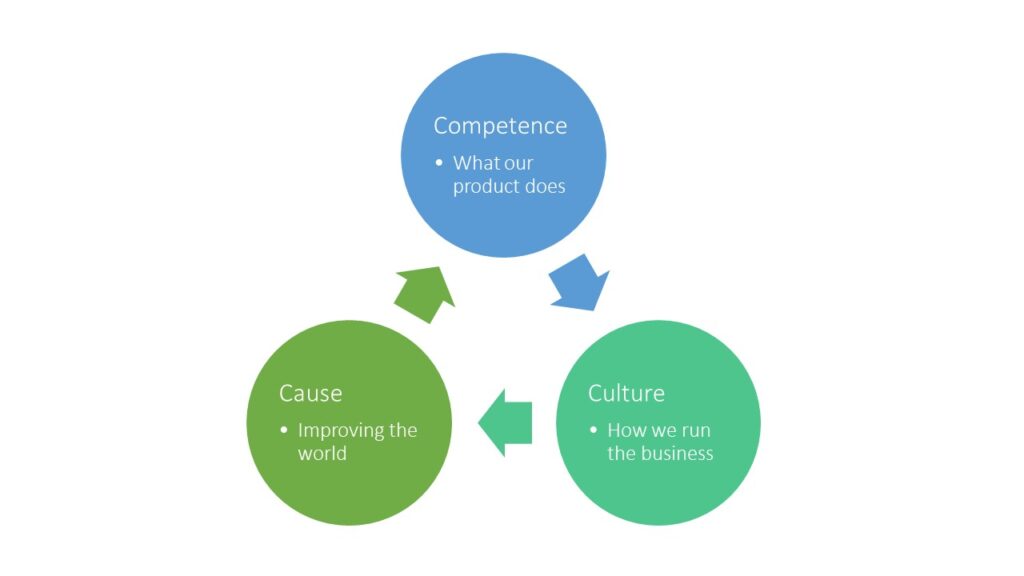One of the big excitements of business at the moment involves discussions of a company’s purpose. Lots of firms think they should have one but where do you find a purpose? How do you know if you have a good one? What if no one believes you when you say you have a purpose? Jonathan Knowles (one of my co-authors) and three other major figures have written in HBR trying to clarify the discussions. They suggest that there are three meanings of a purpose that can get confused. Importantly all can be valuable but to their minds not all firms will, or indeed should, have all three elements.
The Three Purposes Of A Purpose
There are ways to look at a purpose. This causes problems because one can end up speaking at cross-purposes (literally I guess). The three purposes of a purpose can be described as competence-based, culture-based, and cause-based.
Competence-Based
This might be the most traditional. If non-businesspeople think of a purpose this might be it. “We want to produce the best muesli in the world”. This is simple and does what it says. Such purposes are very hard to argue with. They might be the least inspiring though, e.g., who cares about Muesli that much? Still, such a purpose is very useful in determining your actions. “Does this improve our Muesli?”, becomes a key question when making decisions.

Culture-Based
Here the purpose comes from how the business is being run. In many ways, this is the most internal. Despite its somewhat inward-looking nature, a culture-based purpose can give wide benefits. A fun place to work might see better staff retention. In turn, this might allow the firm to better serve customers. This positive customer service could generate more profits. Think of it as you need to help yourself put on the airplane mask before you can help others.
Cause-Based
This might be what a lot of people nowadays think of when they think of purposes. It is lovely when a firm has one of these. But not all will have one of these purposes and the authors argue firms absolutely don’t have to have one. Indeed, some of the worst problems come when firms pretend to be cause-based when they really aren’t. (I guess if your cause is the promotion of hypocrisy that works. Or does it? Imagine you say you want to promote hypocrisy and do so you. Then you are doing what you say so isn’t that undermining your purpose? I guess I am just restating the liar’s paradox there.)
Still, having such a purpose can be something that unites people in a firm. It helps decision-making. ‘Is this really what we should be doing?’ becomes a key question. When it isn’t perfectly followed this can create a bit of cynicism. “Don’t be evil” might become “don’t be more evil than the law allows” over time and eventually you don’t really have anything that sets you apart.
Still, a cause-based purpose done well can be extremely powerful. Many employees want to work for an organization with a purpose beyond making them (or more likely, someone else) really rich. Causes can be great, but only if they make sense for you.
Key Advice
Don’t rally around a cause unless you actually have one.
Don’t delegate purpose to the marketing team alone.
Knowles, Hunsaker, Grove, and James (2022)
The key point is your purpose should be, well, your purpose. If it is something you change every ten minutes with whatever is trendy, or whatever a focus group says, that really isn’t a purpose.
For more on social dimensions in business see here, here, here and here.
Read: Jonathan Knowles, B. Tom Hunsaker, Hannah Grove, and Alison James (2022) What Is the Purpose of Your Purpose? (hbr.org) Harvard Business Review, March-April
